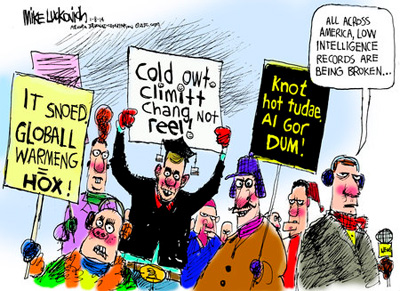Global Carbon Dioxide Levels Topped 400 PPM Throughout March In Unprecedented Milestone

Average global levels of carbon dioxide stayed above 400 parts per million, or ppm, through all of March 2015 -- the first time that has happened for an entire month since record keeping first began, according to data released this week by the National Oceanic and Atmospheric Administration (NOAA).
Scientists with NOAA's Earth System Research Laboratory have called the news a "significant milestone" in the growing scourge of man-made climate change.
“This marks the fact that humans burning fossil fuels have caused global carbon dioxide concentrations to rise more than 120ppm since pre-industrial times,” Pieter Tans, lead scientist of NOAA's greenhouse gas network, told The Guardian on Wednesday. “Half of that rise has occurred since 1980.”



